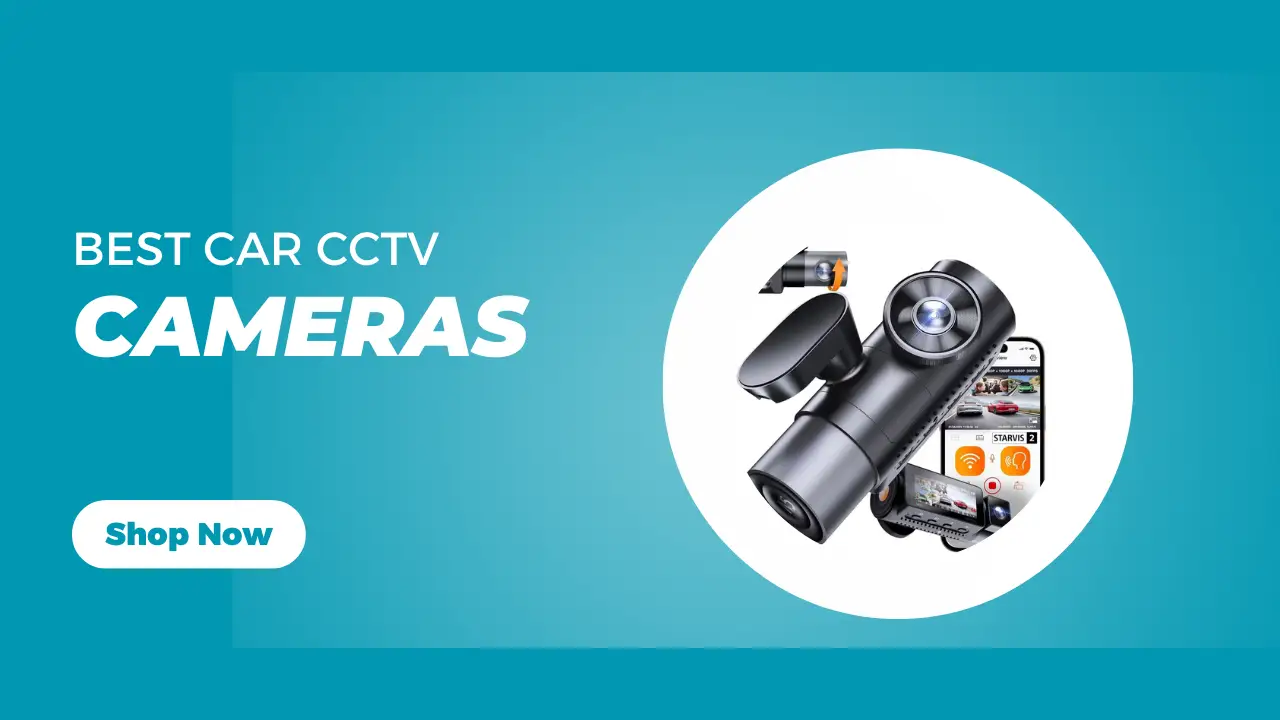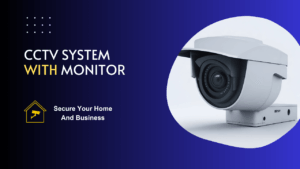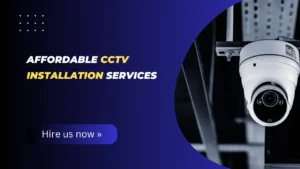You shouldn’t leave your car’s safety and security to chance. A car CCTV camera protects you from accidents, theft, and vandalism and provides excellent evidence for insurance claims. The right camera system will transform your daily driving experience, whether you want a simple dash cam or a complete security solution.
Let me guide you through the best dash cam options for 2024. You’ll find everything from wallet-friendly choices to premium models packed with advanced features.
The most important factors include video quality, storage capacity, and night vision capabilities. You’ll also get practical installation tips and learn about legal requirements. These cameras might even lower your insurance premiums and give you peace of mind when your car is parked.
Top Car CCTV Cameras for 2023
Car CCTV cameras come in a variety of options and price points. The choices might overwhelm you at first. We selected the best performers to help you make an informed decision.
Budget-friendly options
Several dash cams provide reliable protection at prices under £100. The Orskey S680 costs £39.99 and delivers 1080p full HD recording with an expansive 170-degree field of vision. The Apeman C420 is another great choice at £59.99, and it has both front and rear cameras recording at 1080p/30fps.
The Nextbase 222 stands out in this category with:
- 1080p Full HD recording
- Intelligent parking mode
- Impact detection
- Excellent build quality
Mid-range dash cams
The price range between £100-£200 offers more sophisticated features and better build quality. The Garmin Mini 2 (£119) stands out with its compact design and voice control capabilities. This dash cam works best in smaller vehicles because you can hide it completely behind your rear-view mirror while it captures Full HD footage.
Key features comparison of mid-range options:
| Feature | Garmin Mini 2 | Nextbase 522GW | Ring RSDC4000 |
|---|---|---|---|
| Resolution | 1440p | 1440p/30fps | 1080p |
| Field of View | 140° | 140° | 140° |
| Special Features | Voice Control | Alexa Built-in | Parking Mode |
| GPS | Yes | Yes | Yes |
Premium car cameras
Premium dash cams (£200+) are a great way to get advanced features and superior video quality. The Nextbase iQ 4K leads the pack in dash cam technology with these impressive features:
- 4K front-facing camera with 140° view
- 2K cabin camera with 180° coverage
- AI-powered incident detection
- 24/7 connected car security
- Cloud storage capabilities
The Thinkware F70 stands out with its exceptional performance in low-light conditions and professional-grade recording capabilities. The Viofo A229 Pro delivers complete coverage with 4K footage through a polarizing lens that works especially well in challenging lighting conditions.
Your ideal car CCTV camera choice depends on your needs. Premium models pack advanced features like live streaming, cloud backup, and AI-powered incident detection. Many budget and mid-range options still deliver excellent core functionality to protect your daily drives.
Key Features to Consider
A good understanding of core features helps you choose the right car CCTV camera that matches your specific needs. Let’s explore the critical specifications that will enhance your dash cam experience.
Video quality and resolution
Your dash cam’s video quality determines how well it captures significant details like license plates and road signs. 1080p Full HD remains a popular choice, and modern dash cams come with several resolution options:
| Resolution | Pixel Count | Best Use Case |
|---|---|---|
| 1080p | 1920×1080 | Daily commuting |
| 2K (QHD) | 2560×1440 | Improved detail capture |
| 4K (UHD) | 3840×2160 | Professional monitoring |
Note that higher resolution footage needs more storage space. Cameras with advanced image sensors like Sony STARVIS deliver optimal results and excel in lighting conditions of all types.
Field of view
Your camera’s field of view (FOV) substantially affects its coverage area. Wide angles might seem appealing, but finding the right balance matters:
- 120-140 degrees: Ideal for most drivers and provides clear footage without distortion
- 140-160 degrees: Works well for larger vehicles, though slight edge distortion might appear
- Above 160 degrees: Best avoided because images become too distorted
Night vision capabilities
A dash cam must work reliably in all lighting conditions. Modern night vision features come with several capabilities:
Enhanced Night Vision: The Nextbase 422GW and 522GW cameras use sophisticated f1.3 lenses and light sensor technology. These advanced systems capture superior footage in low light. The camera automatically adjusts contrast and brightness to improve visibility of number plates and road signs.
Standard Night Vision: Basic models come with simple night vision that works well for everyday use. The footage remains useful in low-light conditions, though these systems aren’t as advanced as their premium counterparts.
Storage capacity
Several factors determine how much storage you’ll need, like video quality and how long you record. Today’s dash cams come with adaptable storage options:
Local Storage Options:
- MicroSD cards (64GB-256GB recommended)
- Loop recording that overwrites older footage automatically
- Incident detection that keeps important clips safe from deletion
Cloud Storage Benefits:
- You can access your footage from anywhere
- Important recordings back up automatically
- Your footage stays safe even if your camera is damaged or stolen
- You can share videos easily with insurance companies or law enforcement
A high-endurance microSD card designed specifically for nonstop recording will serve you best. These cards handle extreme temperatures and constant write cycles well and work reliably in all types of weather.
The storage space you choose matters a lot. 4K videos need substantially more space than 1080p recordings. A 128GB card holds about four hours of high-quality footage before it starts loop recording. Lower-quality settings let you record for longer periods.
Installation and Ease of Use
Modern dash cams are simple to install, with multiple setup options that match your technical skills and comfort level. These devices come with user-friendly features and installation methods. The latest models have made the process easier than ever with their adaptable connectivity options.
Plug-and-play options
A simple dash cam setup takes just minutes to complete. Modern devices include a 4-meter power cable that plugs into your car’s cigarette lighter socket. You can mount the camera behind your rearview mirror and route the cable along your windscreen’s edges to start recording immediately.
Quick Installation Tips:
- Mount the camera behind your rearview mirror to capture the best view
- Keep the lens clear of your road visibility
- Hide the cables in the headliner to maintain a clean look
- Check your camera’s angle before securing the final position
Professional installation
DIY installation works great for simple setups, but professional fitting provides several advantages with complex systems. Retailers like Halfords and specialized providers offer professional installation services that include:
| Service Feature | Benefit |
|---|---|
| Hardwiring to fuse box | Frees up 12V socket |
| Hidden cable routing | Cleaner, more professional look |
| Optimal camera positioning | Better video coverage |
| Parking mode setup | Improved security features |
Professional installation becomes essential, especially when you have a dual-camera system (front and rear) or need advanced features like parking mode. Technicians can visit your home or workplace and complete the installation in 1-2 hours.
Smartphone connectivity
Modern dash cams use wireless technology to boost your experience. Built-in Wi-Fi capabilities let you:
- View and Download Footage
- Access recorded clips on your smartphone
- Transfer important videos without removing the SD card
- Share footage right away with insurance companies or authorities
- Remote Monitoring
- Check your vehicle from anywhere
- Get immediate alerts about incidents
- Access live view features with compatible models
Premium models offer cloud integration through 4G modules to give you better connectivity. Your dash cam’s features become accessible remotely through dedicated mobile apps with continuous connection. BlackVue and Nextbase models stand out in this area and provide complete smartphone integration through their apps.
The setup process needs you to download your manufacturer’s app and pair your devices. Most modern dash cams create their own Wi-Fi network that connects your phone directly to the device. Cloud-enabled features might need additional connectivity modules and data plans. The improved functionality makes this investment worthwhile if you want complete vehicle monitoring.
The smartphone features add convenience but should not distract from your dash cam’s main goal. Start with proper installation and positioning before you explore additional features through the mobile app.
Legal Considerations and Privacy
The legal framework of car CCTV cameras plays a significant role in personal and business applications. These devices provide valuable protection and bring specific privacy and data protection responsibilities.
Local laws and regulations
UK law permits dash cam use, but you need to follow proper installation and operation guidelines. Your windscreen wipers’ swept area should not be blocked by more than 40mm of the camera. Wrong camera placement could lead to:
- £1,000 in fines
- Three points added to your license
- Court rejection of your recorded footage
Rules change by a lot as you cross borders. To cite an instance, French authorities welcome dash cams, while Luxembourg’s laws prohibit their use during drives. Research becomes crucial before you hit European roads to stay clear of any penalties.
| Country | Dash Cam Status | Special Requirements |
|---|---|---|
| UK | Legal | Clear windscreen view required |
| France | Legal | No restrictions |
| Luxembourg | Restricted | Cannot operate while driving |
| Germany | Legal | Must not record public spaces |
Data Protection
Your car CCTV camera footage becomes personal data under GDPR and the Data Protection Act 2018 when it captures people or vehicle plates that can be identified. Camera operators need to follow these essential rules:
- Justify Usage: A valid reason must exist to record footage
- Secure Storage: Your footage needs proper security protection
- Limited Retention: Recordings should be kept only while needed
- Access Control: Only authorized staff can view the footage
- Breach Reporting: Data breaches must be reported within 72 hours
Business users face additional obligations. The law requires registration with the Information Commissioner’s Office (ICO) and payment of a data protection fee. Failure to comply brings severe penalties – fines that reach €20 million or 4% of global turnover, whichever amount is higher.
Consent for passenger recording
Recording passengers needs special attention, especially when you have a taxi or fleet vehicle. Here are your responsibilities:
Notification Requirements:
- Put up clear signs that show cameras are operating
- Let passengers know about recording before the trip starts
- Give details about how you use and store data
- Add contact information for privacy concerns
Your camera might have audio recording features, so you need extra care. The ICO suggests:
- Turn off audio recording as default
- Use audio only when you need it
- Tell people inside when audio is recording
- Turn cameras off during personal use
Business operators should create a resilient dash cam policy that has:
- Why you record
- How you handle data
- How long you store it
- Who can access it
- Where to find privacy notices
Note that footage can help or hurt your case in legal proceedings. The police can take your recordings as evidence. Deleting footage before they seize it is evidence tampering. Keep records of how you follow rules, review policies regularly, and document staff training if needed.
Cloud-connected dash cams need careful handling. Make sure your storage provider meets GDPR requirements. Set up good security measures to send data. You should encrypt stored footage and keep secure backups of important recordings.
Benefits of Car CCTV Cameras
A car CCTV camera does more than just add another gadget to your vehicle – it helps protect you and gives you peace of mind. These devices are a great way to get multiple benefits. They protect your interests when accidents happen and might even lower your insurance costs. Modern drivers now consider these cameras a must-have accessory.
Evidence in accidents
Clear video evidence from your dash cam can distinguish between a straightforward claim and a lengthy dispute after a road incident. Your dash cam serves as an impartial witness and provides tamper-proof, timestamped footage that can:
| Benefit | Impact |
|---|---|
| Fault Determination | Quickly establishes responsibility |
| Claims Processing | Speeds up settlement procedures |
| No-Claims Protection | Helps preserve your bonus when not at fault |
| Dispute Resolution | Provides clear evidence for contested cases |
Your car’s CCTV camera footage becomes especially valuable during complex scenarios like multi-vehicle accidents or hit-and-run incidents. Video evidence strengthens your position and helps ensure fair treatment for your insurance claims.
Insurance premium reduction
A car CCTV camera investment can bring you the most important financial benefits through insurance savings. Insurance providers now see dash cam users as more responsible drivers and give premium reductions. Here’s how you can get the most savings:
- Quality Requirements
- Your camera must provide high-resolution footage (minimum 1080p)
- Choose models with clear number plate recognition capabilities
- Select devices with GPS tracking functionality
- Opt for cameras with both day and night recording capabilities
- Documentation Benefits
- Faster claims processing
- Protection against fraudulent claims
- Clear evidence for liability disputes
- Lower risk of premium increases after incidents
The trend of dashcam discounts is growing, though not all insurers offer them yet. You can save anywhere from 10% to 30% off your premium based on your provider and camera system quality. Tell your insurer about your dash cam installation and check their requirements for premium reductions.
Deterring theft and vandalism
A car CCTV camera acts as a strong deterrent against criminal activity, especially when it has advanced security features. Today’s systems provide detailed protection through:
Parking Mode Surveillance: Your vehicle’s parking mode automatically monitors suspicious activity while parked. This feature gives you:
- Motion detection recording
- Impact sensor activation
- Real-time alerts to your smartphone
- Cloud backup of security footage
24/7 Protection Features Advanced car CCTV systems improve your vehicle’s security with:
- Live streaming capabilities
- GPS location tracking
- Emergency incident notification
- Remote viewing access
Visible cameras discourage thieves and vandals, while hidden units capture vital evidence during incidents. Cameras with night vision capabilities ensure your vehicle stays protected in underground parking or dark conditions.
Ground Applications Your dash cam’s security goes beyond simple recording:
- Catches parking incidents in busy lots
- Records evidence of attempted break-ins
- Documents vandalism attempts
- Tracks suspicious behavior around your vehicle
Canadian federal government data shows about 90,000 cars are stolen yearly, costing insurance policyholders and taxpayers nearly £0.79 billion. A detailed car CCTV system helps protect your vehicle and can save thousands in theft-related losses.
Enhanced Security Integration Modern car CCTV cameras work among other security measures to build a complete protection system:
- Integration with vehicle alarm systems
- Connectivity with home security networks
- Smartphone app controls and notifications
- Cloud storage for secure footage backup
A dual-camera setup with front and rear coverage provides the best protection. This setup gives complete surveillance of your vehicle’s surroundings and maximizes security. Advanced systems also offer interior cameras that are great for ride-share drivers or fleet vehicles.
Note that your car CCTV camera’s performance depends heavily on proper installation and regular maintenance. You should position all components correctly, check recording quality often, and keep adequate storage space to ensure continuous protection. The right setup makes your camera system a powerful tool that protects your vehicle and provides essential evidence when needed.
Conclusion
Car CCTV cameras are a great way to protect modern drivers. They provide complete protection with high-quality video recording that deters theft and collects evidence.
These devices help drivers save money through lower insurance premiums. The whole ordeal of resolving accidents becomes quicker, and vehicle security gets boosted. You can find cameras that fit any budget.
Simple models handle core recording tasks, while premium systems have advanced features like smooth connectivity and AI-powered incident detection.
Picking the right dash cam needs careful thought. Video quality, storage space, and setup requirements matter while following legal guidelines. Drivers should match their needs with available features.
Their chosen system should give enough coverage without blocking the windscreen or breaking data protection rules. The camera’s reliability depends on proper maintenance and setup. This creates a dependable safety net that helps tackle daily driving challenges.
FAQs
What dash cam continues to operate even when the car is turned off?
Thanks to its OBDII power connection, the OWLCAM dash cam remains operational even when the car is off. It features voice-activated clip saving with ‘OkPresto’ and an LCD touch screen, ensuring continuous surveillance even when the vehicle is parked.
Which dash cam is considered the best on the market?
The Garmin Dash Cam™ Live is highly regarded as one of the top dash cams available. It offers real-time connectivity and surveillance, records in 1440p HD video quality, and has a wide 140-degree lens to capture detailed footage continuously when the device is plugged in.
What video resolution is recommended for dash cams?
4K (Ultra HD) resolution is recommended for dash cams as it captures detailed images on the road, including small elements like license plates, under various lighting conditions and distances. However, it’s worth noting that 4K dash cams are pricier, require more storage space, and may need higher-speed SD cards due to their larger file sizes.
Is installing a dash cam in your vehicle advisable?
Yes, having a dash cam in your car is advisable, as it serves as a reliable witness in the event of an accident. It provides strong evidence that can support your case by capturing video footage of the incident and recording traffic violations committed by other drivers.




